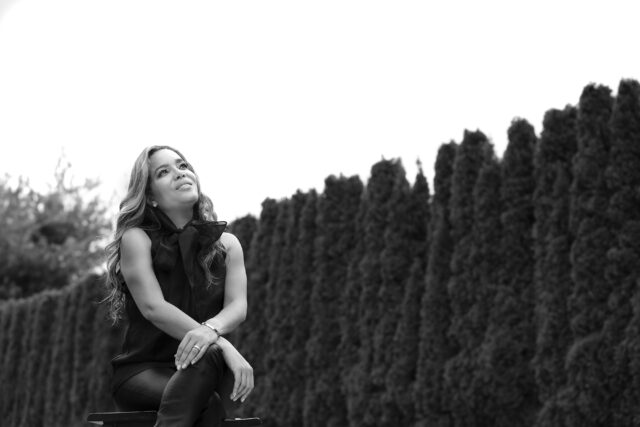
CATHRINE WHITE: When you look back at your parents’ lives, what has been important for you to bring with you as you have raised your own two kids? How do you remind them of the lessons in humility?
SUNNY HOSTIN: My parents sacrificed everything for me. They put their own passions aside and lived dreams deferred so I could achieve anything that I set my mind to. As I’ve raised my children, I’ve sought to prioritize them in the same way. Nothing comes before them, and I hope that I’ve instilled in them the same importance and value of family that my parents instilled in me.
CW: If you could teach young women about the importance of identity, what would that be?
SH: You never have to change your identity, your authenticity, to fit into someone else’s description. It’s a disservice, not just to yourself, but to those around you. Embrace yourself—and love yourself—and the rest will follow.
CW: What were some of the hardest lessons that you learned working with women throughout your career, especially as you got more successful?
SH: I learned so much from the women around me, particularly during my formative years at Fox and CNN. I talk about it a lot in the book—how certain anchors taught me to lean in, and really seize opportunities in front of me. The friendships I have made over the years inspire me—and there is a camaraderie in it. Journalists of color—particularly female journalists—bring a certain perspective to the table that should not be ignored.
CW: In your book you write, “I know that I am representing an entire community and that I owe it to them to present myself, and them, in the finest way possible.” Can you give more insight to that gift of wisdom?
SH: I feel a particular duty to get it right, because there are so few people in my position who look like me. When you have that duty and honor, it’s humbling and it’s also a burden. I’m also forever conscious that I run the risk of the racial trope of being the angry Black woman. I’m quite careful about that. So I internalize all of this. It is so important to be in the room where it happens—where important issues are discussed and grappled with on a national scale—to use my voice to represent what is right, in the finest way possible.
CW: What’s a book that has influenced you?
SH: James Baldwin’s writings—I reflected on many of them while putting together my memoir, particularly his text about identity. He said, “You’ve got to tell the world how to treat you. If the world tells you how you are going to be treated, you are in trouble.” I was also so inspired by the way he talks about our country. Baldwin said, “I love America more than any other country in the world and, exactly for this reason, I insist on the right to criticize her perpetually.” Those premises guided me in my writing.





